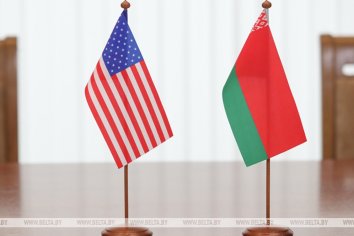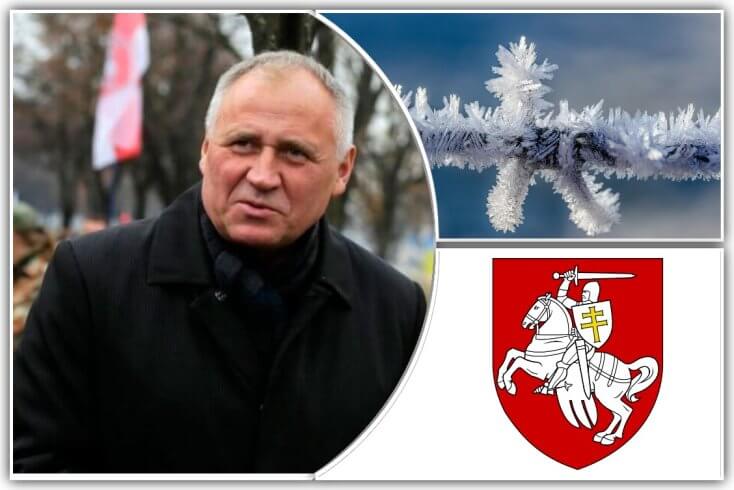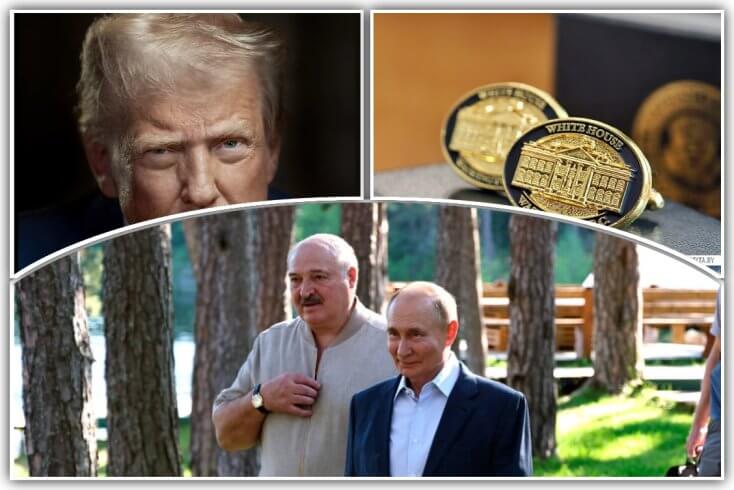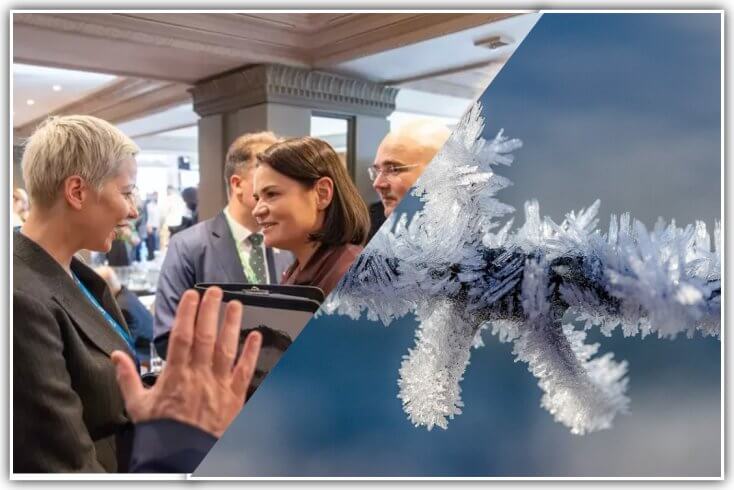For the first time since 2020, as part of negotiations with Washington, Belarusian officials have publicly declared the need for de-escalation with the West. Their rhetoric runs counter to Russia’s current policy of fueling tensions with Europe. Minsk’s statements are not matched by any concrete actions.
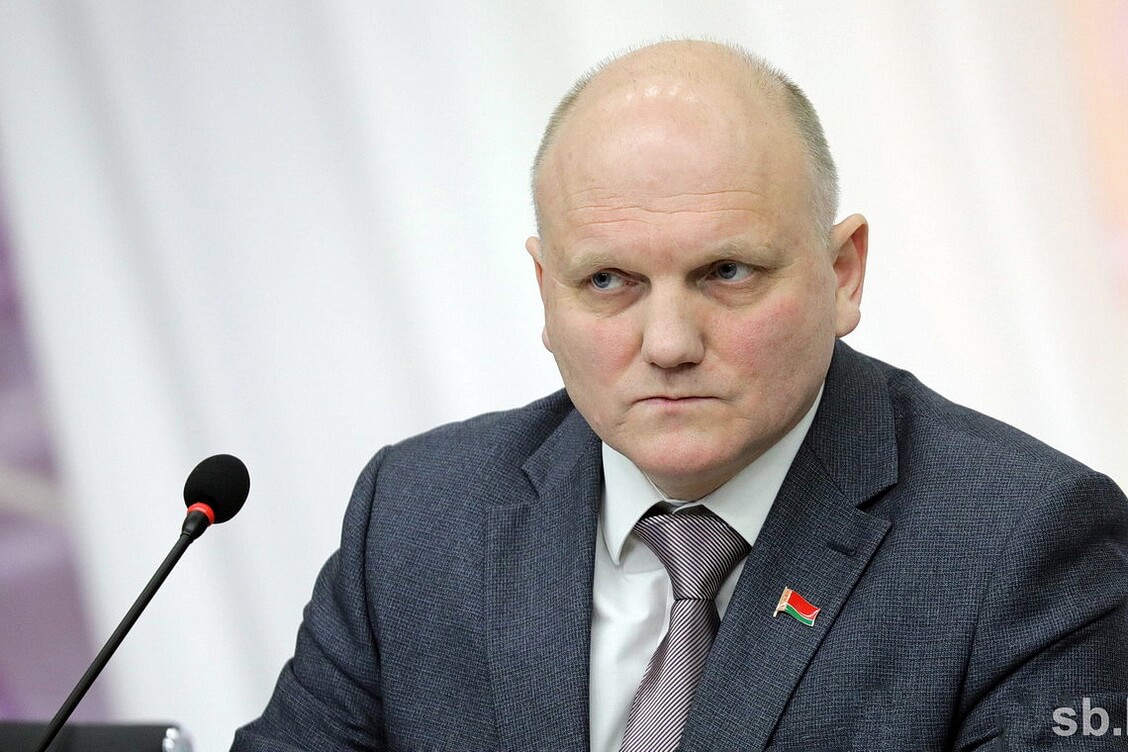
Foreign ministry not involved
On October 14, Alaksandar Łukašenka declared his readiness to strike “a big deal” with the United States during a meeting with the chiefs of the Committee for State Security (KGB) and the Security Council, as well as the prosecutor general. Also present were the prime minister and the head of Łukašenka’s Presidential Administration.
In Soviet terms, this lineup effectively represents Łukašenka’s version of a Politburo.
Notably, the discussion of Belarusian-US relations took place without Foreign Minister Maksim Ryžankoŭ, who was attending a non-aligned forum in Uganda. The foreign ministry was not represented at all, although Łukašenka could have invited a deputy minister.
Ryžankoŭ was also absent from recent talks with US and Chinese delegations. His ministry is similarly sidelined in relations with Russia. His diplomatic service now deals mainly with countries in Asia, Africa and Latin America.
Put simply, Belarusian diplomats are confined to providing propagandistic support for the officially declared pivot to the Global South. The once-influential ministry has been pushed aside — excluded from the country’s real foreign policy decisions.
KGB in charge of relations with the West
KGB Chairman Ivan Tertel appears to be in charge of westward policy. After the meeting, he noted that Minsk maintains communication channels with the West, including with intelligence services.
“Understanding between us is slowly improving. We discuss pressing issues and sometimes find common ground. Our mutual interest is a stable regional situation, a functioning economy, employment, a peaceful life and prospects for our citizens, the absence of conflict situations, and the overall easing of existing tensions,” he said.
In other words, Belarus now conducts dialogue with the West primarily through intelligence channels — and the KGB chief is leading the process.
It is worth recalling how intelligence officers tend to view the world — after all, Russian President Vladimir Putin is himself a former KGB lieutenant colonel.
In Belarus, the KGB is responsible for suppressing the opposition and controlling the detention and release of political prisoners. Consequently, relations with the West are seen largely through the prism of political prisoner exchanges.
Security chief’s “peace-loving” rhetoric
The meeting marked a sharp change in Minsk’s previously hostile rhetoric toward the West. Since 2020, all of Łukašenka’s meetings with security officials had focused on confrontation with the US and EU, particularly neighboring countries. They routinely discussed militarization, mobilization and the need to resist “NATO aggression.”
Now, for the first time in five years, Tertel emphasized the need for “a general easing of tensions.” And this appears to go beyond a possible grand bargain with the US.
The KGB chief — suddenly cast as a dove of peace — spoke of normalizing relations with Western countries, calling them “partners.” Some of his key remarks included:
• “We are open to this for Western Europe. I think we’ll soon hear good news on this track.”
• “The meeting clarified Belarus’ position both in the negotiation track with the American side and in relations with our main neighbors and partners, including France and Germany.”
• “We are determined that our relations serve not confrontation but the benefit of our peoples — the development of our economies, social, family and other ties.”
• “Of course, we also discussed our relations with neighbors — Poland, traditionally, and the Baltic states.”
• “Our mutual interest is a stable regional situation, a functioning economy, employment, a peaceful life and prospects for our citizens, the absence of conflict situations.”
Such conciliatory language has not been heard from Belarusian officials — let alone the KGB chief — in years. What explains this sudden shift in tone?
Seizing an opportunity
The answer lies in current geopolitical dynamics: the US administration has shown interest in involving Minsk in talks on a settlement of the war in Ukraine. A window of opportunity has opened, but it may close quickly if Minsk fails to act.
Tensions between Russia and the US are rising. Any thaw could be short-lived, and Minsk’s potential role as an intermediary between Washington and Moscow might soon vanish. Hence the urgency — striking while the iron is hot — and the sudden rhetorical softening.
Yet there are serious obstacles to any genuine detente between Minsk and the West.
Belarus could try to make a deal with the US: release and deport political prisoners in exchange for a partial suspension of sanctions. But such a move would bring limited economic benefit unless the European Union followed suit, since Belarus’ trade with the EU far exceeds its trade with the US.
Tertel’s comment that detente must also include the EU, not just the US, is therefore logical.
However, the EU’s position remains unchanged: releasing political prisoners and ending migrant attacks are merely preconditions for serious talks about lifting sanctions.
Minsk, meanwhile, seems to be counting on US mediation. Łukašenka has repeatedly claimed that Europe is not a genuine political actor and merely follows Washington’s lead.
Still at odds with the EU
Expecting Washington to pressure its European allies into lifting sanctions on Łukašenka’s behalf is unrealistic. Even open praise for Donald Trump would not change that.
Moreover, EU policy toward Belarus depends largely on its neighbors — Poland, Lithuania, and Latvia — with whom tensions remain high. Poland’s recent decision to close the border completely speaks volumes. There are no signs of improvement, even though repairing these relationships would be the logical starting point.
A major source of conflict is Warsaw’s and Vilnius’s support for the Belarusian opposition. As the KGB intensifies efforts to target opponents abroad, this conflict is only likely to deepen.
Tensions are also growing with Ukraine. Kyiv was angered by Łukašenka’s recent meeting with the Kremlin-appointed governor of occupied Kherson, Vladimir Saldo.
Łukašenka has also announced plans to build another nuclear power plant to supply electricity to Russian-occupied — or, as he put it, “liberated” — Ukrainian territories. Meanwhile, a drone factory is being constructed in Belarus with Russian assistance. All this further undermines Minsk’s international image.
Łukašenka cannot thaw relations with the West without Moscow’s consent, and the Kremlin opposes any westward drift by Minsk.
As Russia’s confrontation with the West intensifies — with Trump hinting at sending Tomahawk missiles to Ukraine and Russian drones appearing in European skies — genuine detente between Belarus and the West seems increasingly improbable. The two trajectories are moving in opposite directions.
Words not enough
Ultimately, rhetoric alone will change nothing.
If Belarus truly seeks detente, it must at least stop orchestrating migrant attacks at the border — which have actually intensified since early October — end political repression and release political prisoners.
The West would also expect it to stop supporting Russia’s war against Ukraine.
None of this is happening. As the saying goes, don’t mistake hope for illusion.
